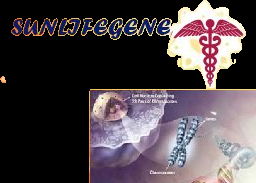HCK-Mediated gp130/STAT3 Signaling in Multiple Myeloma: Mechanisms, Inhibitors, and Therapeutic Opportunities

Angela Long Grade 12 student at St. Mildred’s-Lightbourn School, Sun Life Gene Medical Science Institute Cancer Research Program Student, Toronto, Ontario, Canada
Abstract Hematopoietic Cell Kinase (HCK) belongs to the Src-family of non-receptor tyrosine kinases expressed almost exclusively in myeloid lineage cells. HCK activity skews macrophages toward an M2-like, immunosuppressive phenotype and amplifies production of STAT3-stimulating cytokines such as IL-6/IL-11. Those cytokines engage gp130/JAK/STAT3 signalling in tumor and stromal cells, creating a paracrine loop that promotes proliferation, survival, angiogenesis and immune evasion. The HCK-mediated STAT3 pipeline has been demonstrated in solid-tumour models and myeloid-driven malignancies, as well as Multiple Myeloma (MM), an IL-6-dependent blood cancer. This review synthesizes preclinical evidence that myeloid HCK amplifies gp130/STAT3 signalling, surveys available HCK-directed tool compounds and early dual-inhibitors, and proposes experimental strategies to test HCK inhibition as a therapeutic strategy for MM. Given MM’s reliance on IL-6/gp130-driven survival signals and the pharmacological tractability of SFK inhibitors, targeting HCK represents a promising complementary approach to disrupt tumor-supportive TAM circuits. This paper synthesizes current research on HCK inhibition as an emerging Multiple Myeloma (MM) treatment strategy, focusing on HCK-triggered gp130/JAK/Stat3 cascade, function in TAMs, and impact of the TME while addressing barriers in pharmacologically targeting HCK and possible new strategies. Keywords: Hematopoietic Cell Kinase (HCK), Tumor-Associated Macrophages (TAMs), Multiple Myeloma (MM), Interleukin-6 (IL-6), STAT3, SFK Inhibitors
